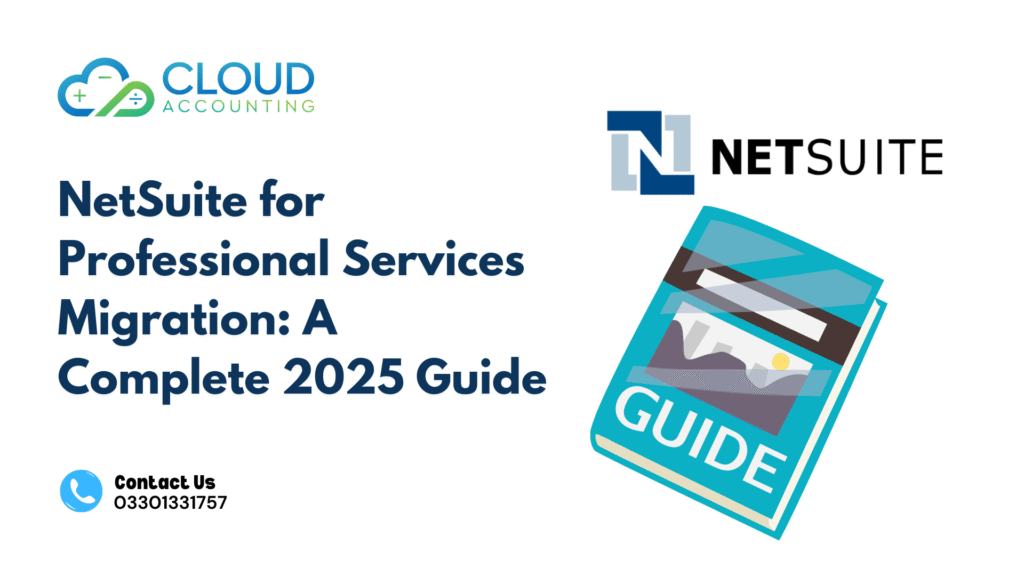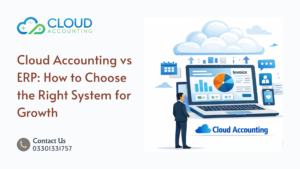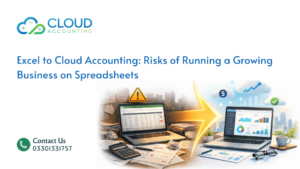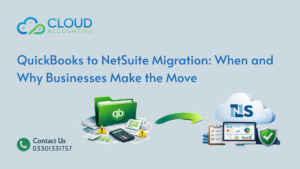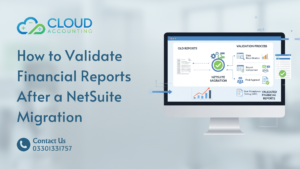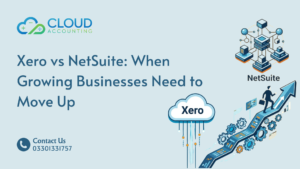Professional services firms are facing a turning point in 2025. Clients now expect instant visibility into project costs, faster billing cycles, and consistent communication — across borders, currencies, and time zones. Unfortunately, most legacy systems like QuickBooks, Sage, or Excel can’t keep up. They’re disconnected, slow, and prone to error.
That’s why firms are investing in NetSuite for Professional Services Migration a complete shift from outdated accounting tools to a modern, cloud-based ERP built for visibility, control, and growth. Whether you’re a consulting firm managing multi-client retainers or an engineering company handling global contracts, NetSuite gives you one platform to manage every moving part from billing to compliance.
In this 2025 guide, we’ll break down why firms are migrating, the biggest benefits, potential challenges, and a proven roadmap to make your transition smooth, strategic, and profitable.
Why Firms Are Embracing NetSuite Migration
For consulting, legal, IT, and engineering firms, growth doesn’t just mean more clients it means more complexity. Tracking hundreds of billable hours, handling multi-currency invoices, and managing global projects stretch traditional systems to their limits.
Spreadsheets and entry-level tools were never designed for professional services scalability. They don’t provide real-time visibility into profitability or resource allocation, leaving leaders guessing where projects stand.
That’s why NetSuite for Professional Services Migration has become essential. It unifies finance, billing, time tracking, and project management all in one place. Unlike disconnected systems, NetSuite ERP for professional services automates billing, centralizes reporting, and enforces compliance across entities and countries.
The result?
- CFOs gain accurate, real-time insight into project margins.
- Finance teams eliminate manual reconciliations.
- Project managers can forecast capacity and utilization instantly.
Without migration, firms risk revenue leakage, missed invoices, and compliance issues that directly impact profitability. With it, they gain clarity, scalability, and the freedom to focus on growth not firefighting.
Benefits of NetSuite for Professional Services Migration
Upgrading to NetSuite for Professional Services Migration isn’t just about replacing old software it’s about transforming how your firm operates.
When professional services firms migrate to NetSuite, they move from juggling disjointed spreadsheets and manual approvals to running a connected system where every department finance, operations, and project delivery shares the same data.
1. Centralized Data Management
All your project, financial, and operational data live in one secure cloud platform. No more merging spreadsheets or chasing updates between departments. NetSuite gives leadership a single source of truth, so reports, invoices, and project dashboards are always accurate and up to date.
2. Automated Billing and Revenue Recognition
Manual invoicing is one of the biggest drains on productivity. With NetSuite, project-based billing is fully automated. Whether you’re billing on milestones, time, or retainers, the ERP ensures accuracy every time.
It also handles complex revenue recognition rules automatically, reducing compliance risks and improving audit readiness especially for firms working across multiple jurisdictions.
3. Real-Time Project Profitability
NetSuite gives you instant insights into utilization rates, margins, and performance metrics. You can identify underperforming projects early, reallocate resources, and protect profitability before it’s too late.
4. Multi-Entity, Multi-Currency Support
For firms expanding internationally, NetSuite automatically manages multi-currency transactions, intercompany eliminations, and consolidated financial reporting. It supports local tax laws, languages, and compliance requirements allowing global firms to operate seamlessly across borders.
5. Compliance and Audit Readiness
Audit trails, built-in reporting templates, and automated workflows mean your compliance checks no longer depend on human memory or manual entries. NetSuite simplifies everything from VAT tracking to time and expense approvals.
6. Scalable Growth for Service Firms
Unlike legacy software that becomes a bottleneck as firms grow, NetSuite evolves with your business. Whether you’re adding new service lines, expanding to another region, or acquiring another firm, NetSuite adapts without requiring a system overhaul.
In short, NetSuite for Professional Services Migration gives firms the structure and agility they need to grow confidently.
Challenges During Professional Services ERP Migration
While NetSuite for Professional Services Migration offers tremendous long-term benefits, getting there can be tricky. ERP migration isn’t just a technical task it’s a full-scale transformation touching finance, projects, operations, and people.
1. Complex, Fragmented Data Structures
Over the years, data often lives in different systems or even personal spreadsheets. Combining that data into a clean, consistent format is one of the hardest parts. Duplicate client names, inconsistent billing codes, and missing project IDs can lead to data mismatches once imported into NetSuite.
2. Resistance from Teams and Leadership
ERP systems change how people work and not everyone loves change. Without a structured change management plan, adoption can lag. Early involvement, clear communication, and training are critical.
3. Incomplete Planning and Testing
Skipping sandbox testing or process mapping often leads to incorrect invoices or broken integrations after go-live. Rigorous testing and validation prevent these issues.
4. Risk of Downtime During Transition
A rushed go-live can cause operational downtime. A phased rollout minimizes risk, ensuring your business keeps running while the system transitions.
5. Lack of Skilled ERP Expertise
Mapping legacy data to NetSuite fields and ensuring compliance alignment require specialized knowledge. Partnering with migration experts prevents errors and accelerates success.
The takeaway: the challenges are manageable if you plan, communicate, and rely on expert guidance.
Step-by-Step NetSuite Migration Roadmap for Service Firms
Step 1: Pre-Migration Assessment
Review your current systems and identify pain points in project tracking, billing, and reporting. This assessment ensures your migration goals align with your broader business strategy.
Step 2: Data Audit & Cleansing
Validate all project, timesheet, and billing data. Remove duplicates, standardize naming, and correct inconsistencies. A clean dataset ensures accuracy after migration.
Step 3: Data Mapping and Configuration
Align each data field with NetSuite’s structure from billable rates to revenue recognition rules. Map workflows, approvals, and billing templates for automation.
Step 4: Testing in a Sandbox Environment
Simulate real-world transactions to confirm system behavior. Test reports, billing cycles, and financial consolidations before launch.
Step 5: Go-Live & Training
Implement the system in phases and train teams by role. Clear documentation and hands-on guidance build user confidence and prevent disruption.
Step 6: Post-Go-Live Optimization
Refine workflows, automate repetitive tasks, and review system performance. Continuous improvement keeps NetSuite aligned with evolving business goals.
A structured roadmap ensures predictable success minimizing risks and maximizing ROI.
Best Practices for a Successful Migration
- Build a dedicated migration team across finance, IT, and operations.
- Use a detailed checklist to stay organized and prevent missed tasks.
- Engage stakeholders early to gain buy-in and reduce resistance.
- Partner with industry experts who understand professional services ERP nuances.
- Prioritize change management train users early and communicate the value of NetSuite.
- Track results post-launch to continuously refine and improve your ERP environment.
When firms follow these principles, they don’t just install a system they create a platform for smarter, faster decision-making and scalable growth.
How Cloud Accounting Supports Migration Success
At Cloud Accounting, we specialize in helping service-based businesses execute successful NetSuite for Professional Services Migrations with minimal disruption and maximum ROI.
1. Industry-Specific ERP Expertise
We understand project billing, timesheets, and compliance across multiple jurisdictions — and configure NetSuite to match.
2. End-to-End Migration Execution
From assessment and data cleansing to mapping, testing, and training, we manage every stage with precision.
3. Ongoing Optimization and Advisory
Post-migration, we fine-tune reporting, automate billing, and support compliance readiness.
4. Minimal Downtime, Maximum Precision
Our structured roadmap and sandbox testing prevent data loss and operational disruption.
5. Change Management and Training
We offer tailored workshops and user guides so teams adopt NetSuite with confidence from day one.
6. A Partner for the Long Run
We don’t disappear after launch we stay by your side to ensure your ERP continues to perform as your firm scales.
Cloud Accounting’s unique blend of accounting expertise and ERP specialization turns migration into a growth catalyst not a disruption.
Conclusion
Professional services firms can no longer rely on outdated systems. To stay competitive, they need an ERP that delivers automation, accuracy, and real-time insight.NetSuite for Professional Services Migration gives firms that edge — combining financial clarity with operational intelligence. It’s not just a system upgrade; it’s the foundation for a smarter, faster, more resilient business model.
At Cloud Accounting, we help professional service firms migrate with confidence, precision, and measurable results.Book your free consultation today to discover how Cloud Accounting can design a tailored NetSuite migration roadmap for your firm minimizing risk and maximizing growth potential.

